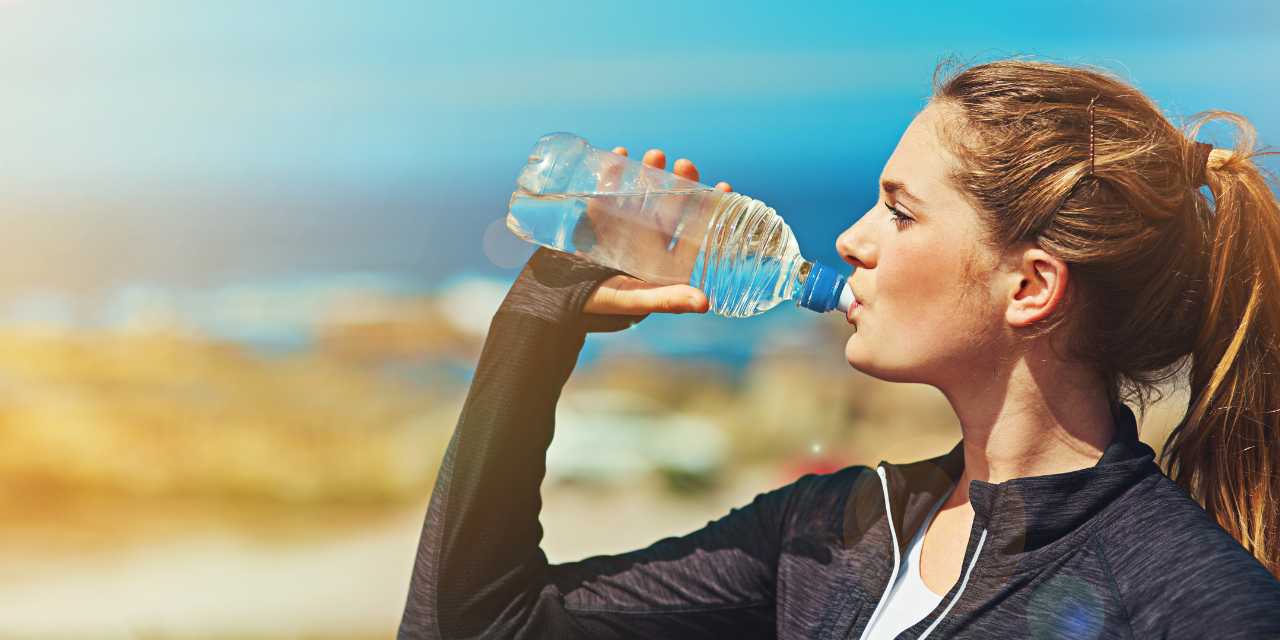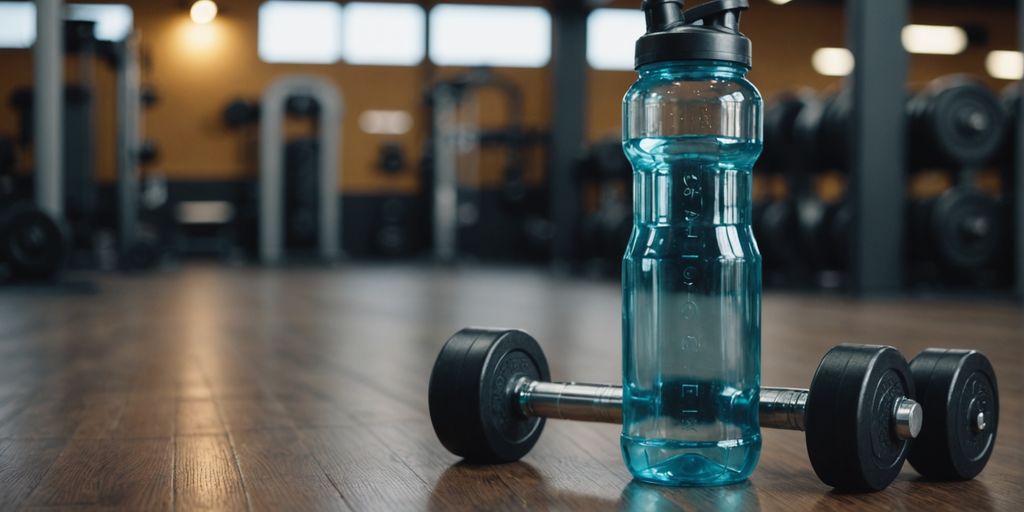Staying hydrated is crucial for everyone, but it becomes even more important when you’re active. Understanding the essential importance of hydration essay in fitness is key to maximizing your performance and staying safe. Whether you’re running, lifting weights, or playing sports, proper hydration can significantly boost your endurance and help prevent injuries. This article will delve into why hydration matters so much in fitness and offer practical tips to keep you properly hydrated during your workouts.
Key Takeaways
- Proper hydration is essential for muscle function, endurance, and cognitive performance during exercise.
- Dehydration can lead to symptoms like muscle cramps, fatigue, and dizziness, making it important to recognize the signs early.
- Monitoring urine color and body weight before and after exercise can help you gauge your hydration levels.
- Athletes should follow specific hydration strategies before, during, and after exercise to maintain optimal performance.
- Choosing the right hydration products, such as water, sports drinks, and electrolyte-rich beverages, can make a big difference in staying properly hydrated.
The Essential Importance of Hydration Essay in Fitness

importance of hydration essay
Understanding the essential importance of hydration essay in fitness can transform the way you approach your workouts. Staying properly hydrated not only fuels your body but also enhances endurance, supports muscle recovery, and reduces the risk of injury. This section explores why hydration is a key factor in fitness success and provides valuable insights into maintaining optimal hydration levels during various physical activities.
Understanding the Role of Hydration in Physical Performance

How Hydration Affects Muscle Function
Hydration is crucial for muscle function. When muscles are well-hydrated, they can contract more efficiently. Dehydration can lead to muscle cramps and reduced strength. This is because water helps transport essential nutrients and electrolytes to muscle cells, aiding in their performance.
The Impact on Endurance and Stamina
Endurance and stamina are significantly affected by hydration levels. When the body loses more than 2% of its water weight, endurance performance drops. This is because dehydration reduces the body’s ability to regulate temperature and maintain blood flow to muscles. Staying hydrated helps maintain endurance and delays fatigue.
Hydration and Cognitive Function During Exercise
Hydration also plays a role in cognitive function during exercise. Dehydration can impair concentration, decision-making, and coordination. This is because the brain relies on adequate water levels to function properly. Keeping hydrated ensures that both the body and mind perform at their best.
Water is essential to life, and adequate hydration is required for the body to function properly; it supports cellular processes, regulates temperature, and maintains overall health.
Recognizing the Signs of Dehydration
Common Symptoms of Dehydration
Dehydration can sneak up on you, especially during physical activities. Common symptoms include:
- Thirst that isn’t relieved by drinking fluids
- Darker yellow urine
- Dry, cool skin
- Headache
- Muscle cramps
- Dizziness or light-headedness
- Apathy
The Importance of Monitoring Urine Color
One practical way to monitor your hydration is by checking your urine color. Light-colored urine is a sign of good hydration, while darker urine, similar to the color of apple juice, usually means you need more fluids.
How to Self-Assess Hydration Levels
You can easily check your hydration levels at home:
- Thirst: Rate your thirst on a scale from 1 to 9. If you feel very thirsty, you might be mildly dehydrated.
- Body Weight: Weigh yourself before and after exercise to estimate sweat loss.
- Urine Volume and Color: Less frequent urination or darker urine can indicate dehydration.
Staying hydrated is crucial for maintaining your physical performance and overall health. Always be alert for signs of dehydration and take steps to stay properly hydrated.
Optimal Hydration Strategies for Athletes
Pre-Exercise Hydration Tips
Before starting any physical activity, it’s crucial to be well-hydrated. Drinking water throughout the day leading up to your exercise can help. Aim to drink about 500 ml (17 oz) of water 2-3 hours before your workout. This helps ensure that your body is well-prepared for the upcoming exertion.
Hydration During Exercise
While exercising, it’s important to maintain your hydration levels. A good rule of thumb is to drink small amounts of water every 15-20 minutes. This helps to replace the fluids lost through sweat and keeps your body functioning optimally. For longer workouts, consider sports drinks that contain electrolytes to help maintain your body’s balance.
Post-Exercise Rehydration Techniques
After your workout, rehydration is key. A strategy of “metered” fluid consumption can help the process: This refers to dividing up the total fluid to be ingested into eight portions, the first to be consumed immediately after the event, with another dose every 30 minutes thereafter, until the process is complete. This method increases hydration efficiency without prolonging dehydration. If your self-checks indicate dehydration at any time, increase your water intake by about 1.5 L (beyond what you normally drink) during the day. Your urine should be about two shades lighter within about 24 hours, a good indicator that you’re back on track.
Remember, the optimal hydration strategy for you depends on a variety of factors. A personalized approach is recommended. That requires calculation, assessment and a bit of trial and error to find what works best for your body.
The Benefits of Proper Hydration

Enhanced Circulation and Nutrient Delivery
Staying hydrated improves the delivery of oxygen and nutrients to your muscles. This helps them work better and recover faster. Proper hydration also helps remove waste from your muscles, keeping them in top shape.
Improved Thermoregulation
When you’re hydrated, your body can control its temperature better. This means you can stay cool during exercise and avoid overheating. It’s like having a built-in air conditioner!
Reduced Risk of Injury
Dehydration can make your muscles tired and more likely to get hurt. By drinking enough water, you can keep your muscles strong and lower the chance of injuries.
Remember, drinking water helps maintain the balance of body fluids. Your body is composed of about 60% water. So, keep sipping to stay in the game!
importance of hydration essay
Choosing the Right Hydration Products
Water vs. Sports Drinks
When it comes to staying hydrated, water is the most basic and least expensive option. However, athletes might find plain water boring and may need more than just hydration. This is where sports drinks come in. They are designed to help you stay hydrated and replenish lost electrolytes during or after exercise. Sports drinks typically contain water, flavors, colors, electrolytes (mainly salt), and sugar for energy. Zero-sugar options are also available.
The Role of Electrolytes
Electrolytes are crucial for maintaining fluid balance in the body. They help regulate muscle function and keep you hydrated. Common electrolytes include sodium, potassium, and magnesium. Electrolyte drinks are an effective way to rehydrate quickly and replenish lost electrolytes during or after exercise.
Hydration Packs and Bottles
When you’re on the move, carrying water or your hydration liquid with you is essential. Hydration packs and bottles come in various sizes and designs to suit different activities. For example, a minimalist pack with a 1.5L bladder is perfect for shorter hikes or runs, while a larger pack with a 2L bladder is ideal for longer adventures. Choose a hydration product that fits your needs and ensures you stay hydrated throughout your activity.
Avoiding the Pitfalls of Overhydration
Understanding Hyperhydration
Drinking too much water can be just as harmful as not drinking enough. Hyperhydration occurs when you consume more water than your body needs, leading to an excess of total body water (TBW). This doesn’t improve performance and can even be dangerous.
The Dangers of Exertional Hyponatremia
When you drink too much water, especially during intense exercise, you risk developing exertional hyponatremia. This condition happens when the sodium levels in your blood become too low due to excess water intake. Symptoms can include headache, nausea, and in severe cases, seizures or coma.
Balancing Fluid Intake
The trick isn’t to stop drinking but to sip smartly. Picture your body as a sponge; it can only soak up so much before it’s saturated. The key is moderation. Here are some tips to help you balance your fluid intake:
- Drink to thirst, not beyond.
- Monitor your urine color; pale yellow is ideal.
- Avoid drinking large amounts of water in a short time.
Remember, drinking excess water will do more harm than good. Always listen to your body and adjust your intake accordingly.
Conclusion
Staying hydrated is crucial for anyone who wants to stay fit and healthy. Drinking enough water helps your body work better, keeps your muscles strong, and makes sure your mind stays sharp. Whether you’re running, biking, or just taking a walk, always remember to drink water before, during, and after your activities. This simple habit can make a big difference in how you feel and perform. So, grab that water bottle and make hydration a part of your daily routine. Your body will thank you!
Frequently Asked Questions
Why is staying hydrated important for fitness?
The importance of hydration essay in fitness cannot be overstated. Staying hydrated is crucial because it helps maintain muscle function, improves endurance, and supports cognitive function during exercise. Proper hydration also regulates body temperature and reduces the risk of injury, making it a vital aspect of fitness.
How can I tell if I’m dehydrated?
Understanding the importance of hydration essay can help you recognize dehydration signs. Common symptoms include dark yellow urine, dry mouth, dizziness, and fatigue. Monitoring the color of your urine is a simple way to check your hydration levels—light yellow indicates good hydration, while darker shades suggest the need for more fluids.
What should I drink to stay hydrated during exercise?
The importance of hydration essay emphasizes choosing the right fluids to stay hydrated. Water is usually the best option, but for intense or long-duration exercises, sports drinks containing electrolytes can be beneficial. Avoid drinks with caffeine or alcohol, as they may lead to further dehydration.
How much water should I drink before, during, and after exercise?
When considering the importance of hydration essay, it’s generally recommended to drink 6-10 ounces of water every 20 minutes during exercise. Before exercising, aim for about 16-20 ounces, and after exercising, replenish any lost fluids based on your sweat rate to maintain optimal hydration.
Can you drink too much water?
The importance of hydration essay also covers the risks of overhydration. Yes, drinking too much water can lead to hyperhydration or water intoxication, which can be dangerous. It’s essential to balance your fluid intake and listen to your body’s signals to avoid overhydration.
What are the benefits of using sports drinks?
According to the importance of hydration essay, sports drinks can be valuable during intense or prolonged exercise. They contain electrolytes like sodium and potassium, which help maintain fluid balance and muscle function, and also provide carbohydrates for energy.



